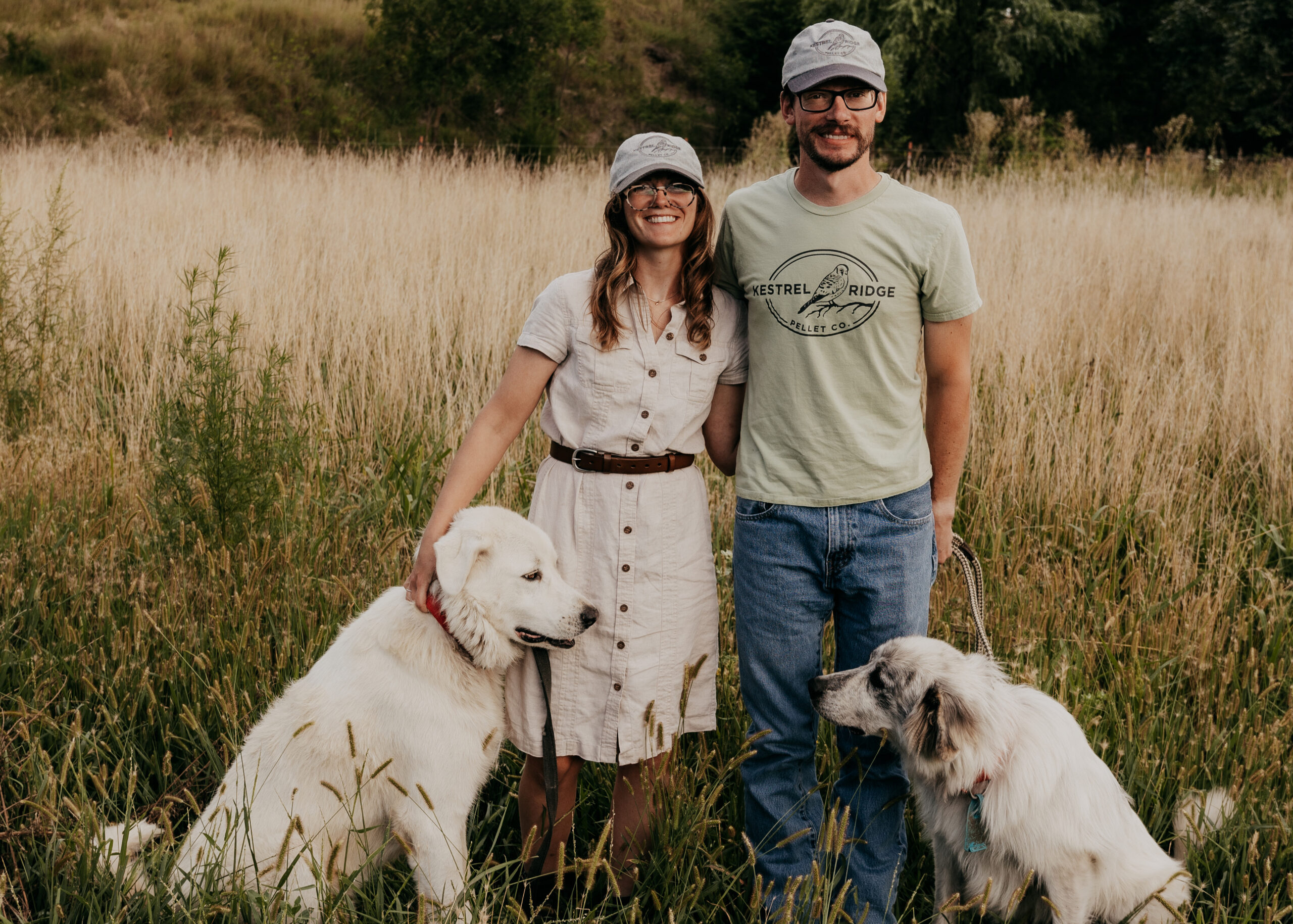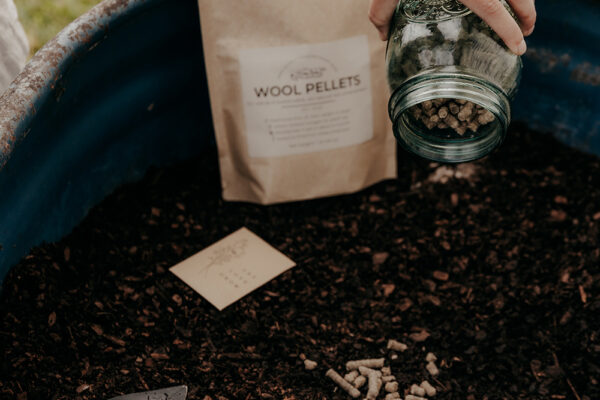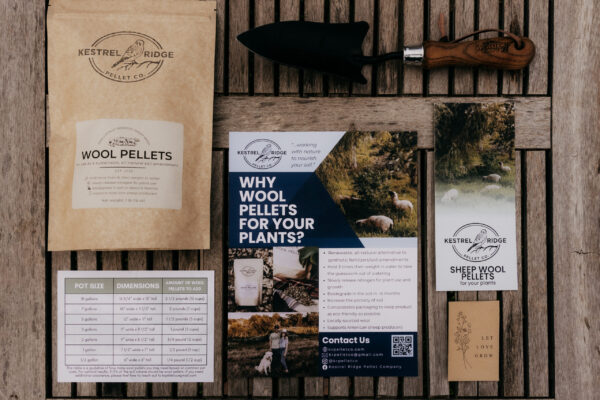
The idea for Kestrel Ridge Pellet Company emerged as Megan Landes-Murphy pored through Google searches to solve a problem. She and her husband had always dreamed of starting a hobby sheep farm together, and moving to Nebraska finally made it possible. But they had no clue what to do with all the extra wool from their sheep. Landes-Murphy found that many sheep farmers in the area had the same problem.
Most sheep in the Midwest don’t have the fine, high-quality wool used to make clothes. Farmers must figure out another way to dispose of the wool. Sometimes, they simply throw it away.
“Wool prices have really gone down in the last 5-10 years,” explained Landes-Murphy. “Sheep producers aren’t getting any money for the wool. It’s like 2-5 cents per pound, and that’s if you can even sell it at all. That doesn’t even cover the cost of shearing the sheep.”
This dilemma prompted Landes-Murphy’s online research, which led her to a study by researchers at the University of Vermont. It showed how sheep’s wool could be made into pellets and used as an organic garden fertilizer. This wool-based fertilizer performed as well as commercial fertilizers.
“The study showed that wool pellets are a viable alternative to other fertilizers, resulting in very similar vegetable yields and quality. I thought that was super cool,” she explained. “That’s when I jumped headfirst into wool pellets. It’s a great outlet for the underutilized sheep wool here in Nebraska. It diverts a lot of sheep wool from landfills and prevents people from storing it in their shed for years until they throw it away.”
Wool pellets hold about three times their weight in water. This helps retain the moisture for garden essentials like seed starting blocks. “Seeds need moisture to germinate, so the pellet creates a nice moist environment in the seed starting blocks,” explained Landes-Murphy. “It also releases nutrients like nitrogen and potassium. You’re getting those nutrients to your seedlings right from the get-go.”
Living in Nebraska opens door to business opportunity
Landes-Murphy and her husband, Tom, met while studying at the University of Wisconsin-Madison, where he earned his PhD in animal breeding and genetics. They first moved to Bozeman, Montana, where Tom taught sheep production at the Montana State University for a couple years. He then took a research position in Nebraska at the USDA Animal Research Center in Clay County. This led them to Lawrence, Nebraska, where they started their sheep farm in 2022 with about 30 sheep. They now sell organic garden fertilizer made from 100% sheep wool produced by local farms.
Tom grew up in Elkhorn, Nebraska. In addition to returning to his home state, the affordability of a sizeable acreage was a big appeal for the couple to move to Nebraska. Finding reasonably priced land made it possible to pursue their dream of having a sheep farm. In Bozeman, Montana—where they had previously lived—the costs of land were too high to consider starting a farm.
Affordable community and rich culture
After relocating to Nebraska, Landes-Murphy was pleasantly surprised by how much she liked her new home. “I was skeptical moving to Nebraska because I didn’t really know what to expect. But the people are so friendly and welcoming, and the cost of living can’t be beat. There are great communities in Nebraska—including in the areas of the state that people often overlook. There is a lot of rich culture.”
She also appreciates the state’s agricultural values. “With Nebraska being such an agriculture-heavy state, I found that people really want to support their local farmers and ranchers. In some states, that’s not always the case,” she explained.
Shopping small and supporting local
The local community’s encouragement of Kestrel Ridge Pellet Company has encouraged Megan and Tom in their business. “They’ve been very supportive,” said Megan. “We work with a great sheep-shearing crew that lives right down the road. They drop off wool whenever I need it. It’s been a great collaboration with them, and people are really interested in keeping money in our rural economies here in Nebraska,” said Landes-Murphy.
Landes-Murphy advises entrepreneurs to connect with their community when launching a new venture. “You really can’t start a business on your own. You’re going to need help from a bunch of different people. It makes it so much easier to have people behind you who know what you’re thinking and can help create the plan for your business.”
One of the best ways to connect with your local community is by shopping locally, explained Landes-Murphy. “A lot of retailers support the other small businesses in their area. They’ll have a special section that displays local products.” By shopping local, entrepreneurs can establish a network of area businesses they might not have previously known.
A small business owner also can establish a connection to the local community through an active online presence. “I doubt Amazon reads all the customer reviews it gets,” Landes-Murphy mused. “I’m reading every review. I take them to heart, even when something fails. I’m learning from feedback. It’s a nice, fun journey,” she added.
Nebraska’s business opportunities
Megan is glad she chose Nebraska as the location to start her business, and she hopes others will do the same. “With lower costs of living, you have a little more financial means to actually get up and get started here in Nebraska,” she explained. “And I’ve just found people are really excited to shop small and support local around here, which I think is absolutely wonderful.”
Interested in starting your business in Nebraska? Click here to learn more.



